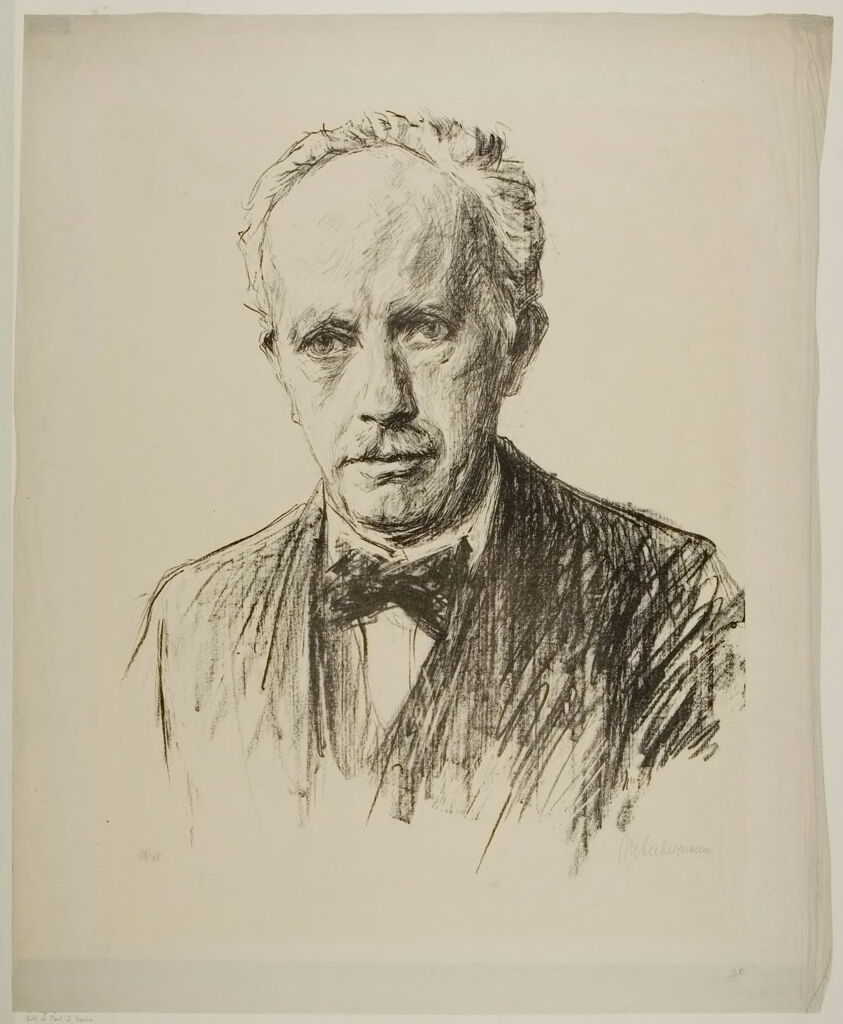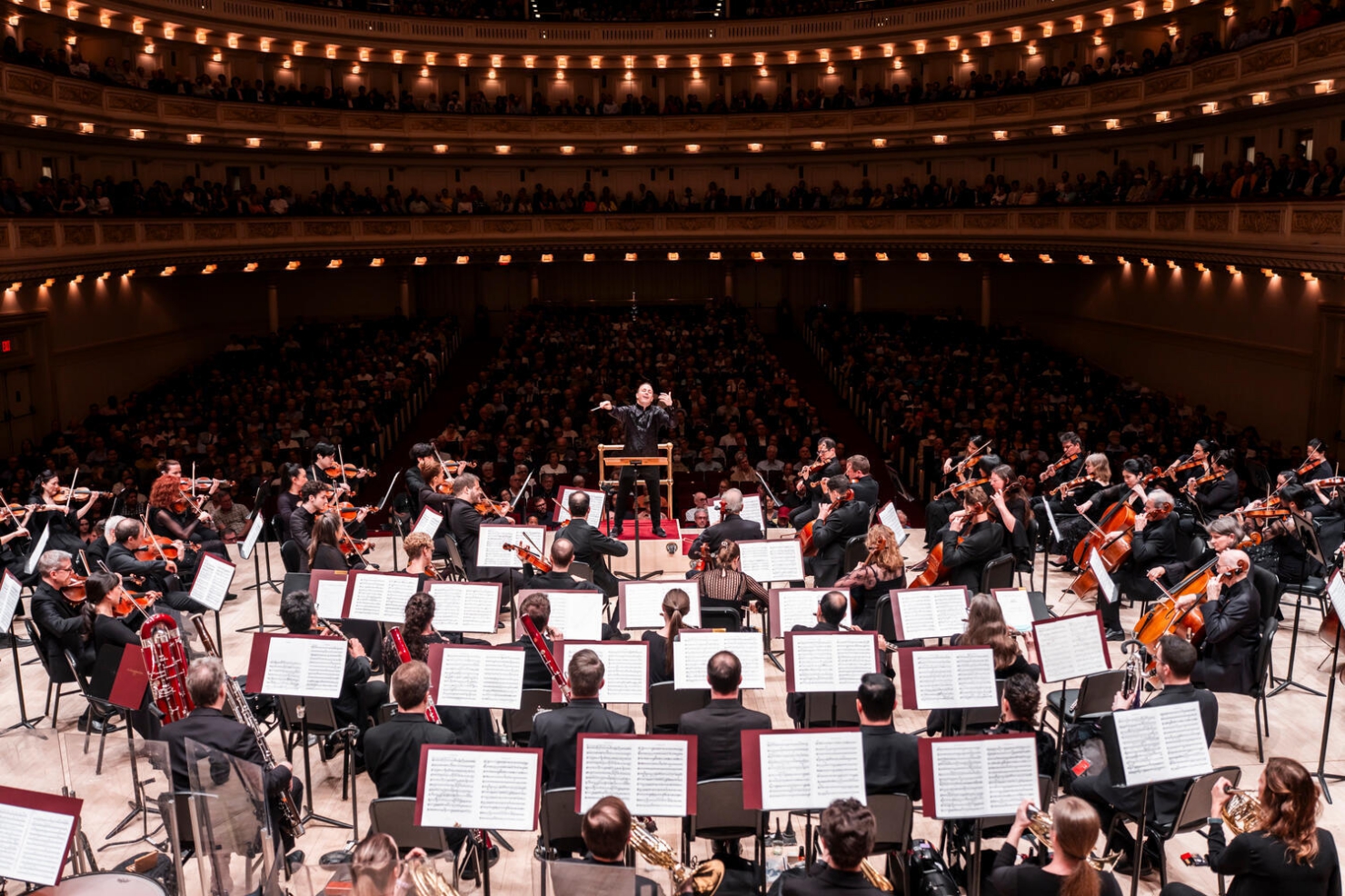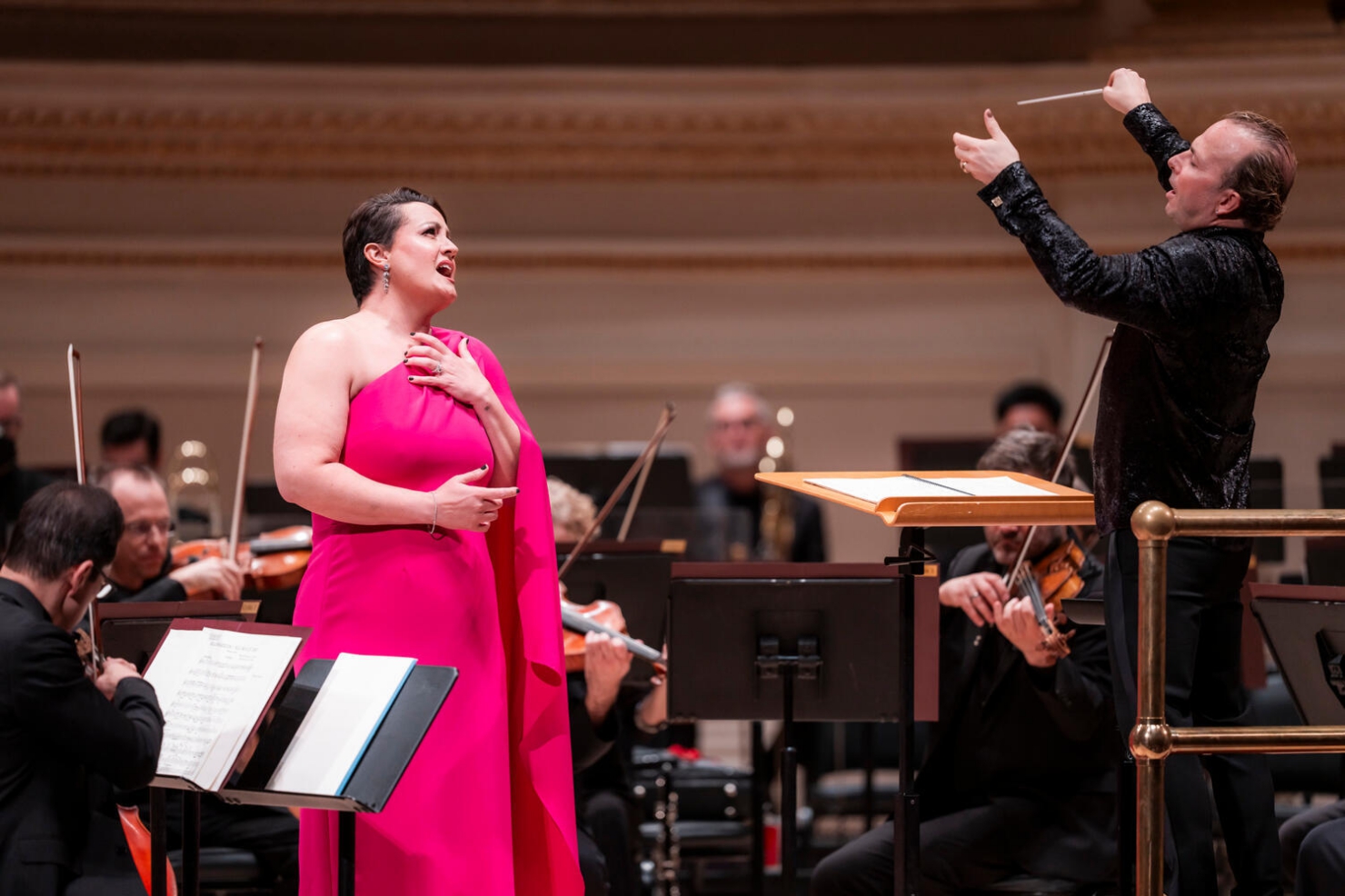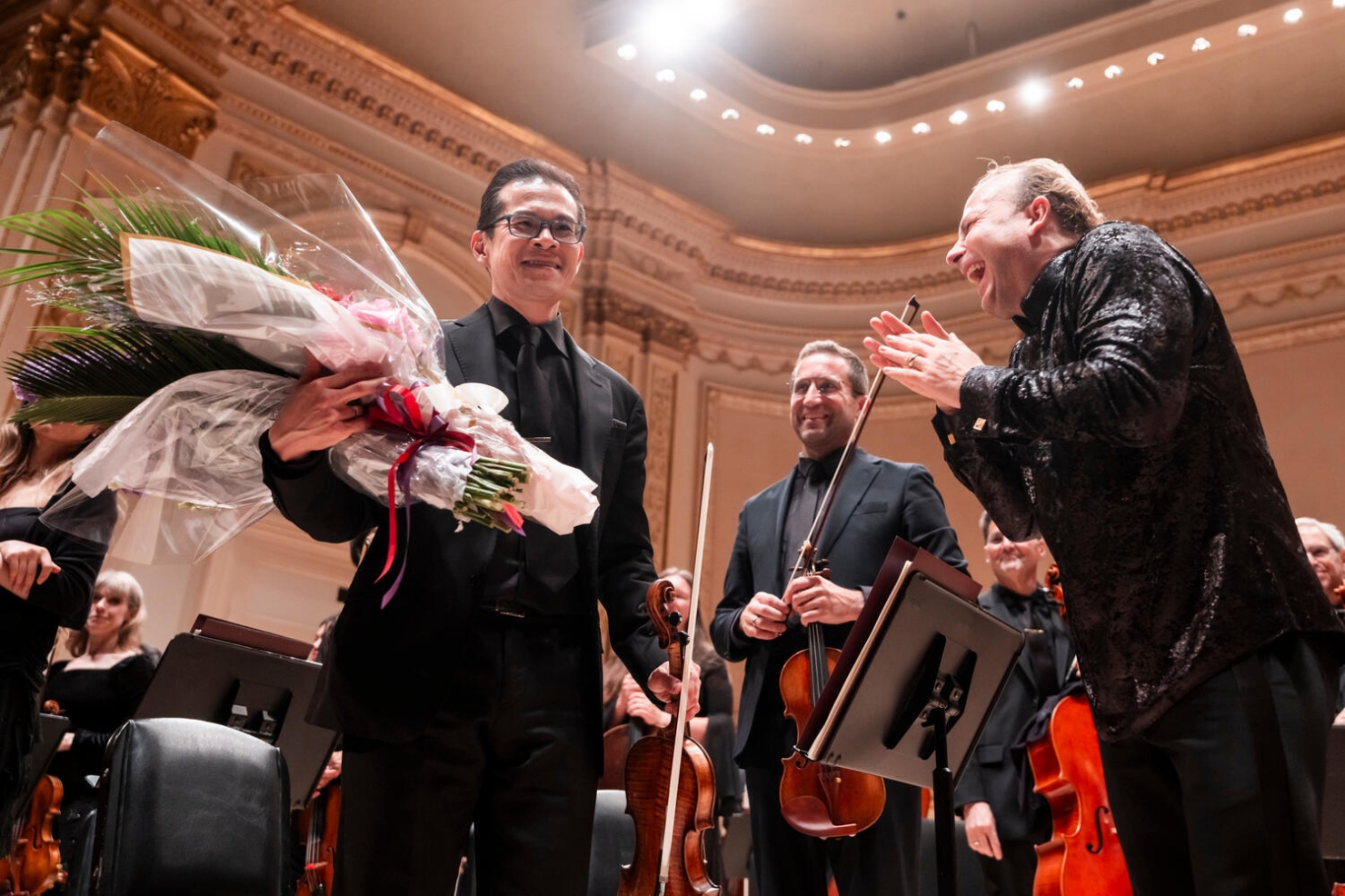
Elza van den Heever and the MET Orchestra: A stunning all-Strauss program
ReviewCritical response to Richard Strauss and his modernism was hardly a bed of roses. One critic wrote that Salome and Elektra could be performed simultaneously and no one would notice. Another concluded that Ein Heldenleben was a revolting picture of a revolting man. Der Rosenkavalier, with the Marschallin’s melancholy monologue, its impossibly beautiful closing trio and duet, plus gorgeous waltz music, was spared such wrath.
As for lieder, Strauss came to it naturally, sometimes spurred by the casual reading of a poem. Composing for piano and solo voice, with his wife, Pauline de Ahna, a noted soprano, in mind, the songs were warmly received. After the fact he chose to orchestrate many of them, which brings us to the Metropolitan Opera Orchestra’s all-Strauss program onstage at Carnegie Hall.

“Onstage” may be stating the obvious but this extraordinarily refined ensemble spends most of its time in the opera house pit, so it’s worth a mention. Opening with a rapturous Der Rosenkavalier Suite that harbored unexpected nuance, soprano, Elza van den Heever followed with five orchestral songs. The concert reached a thunderous climax with the composer’s gargantuan tone poem Ein Heldenleben, about which Strauss argued, unconvincingly, that he was not the hero.
Like Strauss, music director Yannick Nézet-Séguin has garnered his share of barbs, spurred primarily by other musical commitments including the Philadelphia Orchestra and Montreal’s Orchestre Métropolitan. But any signs of neglect or failure to nurture the orchestra he inherited from his MET predecessor, the late James Levine, were dispelled by the razor-sharp orchestral performances and the accompaniment to van den Heever’s insightful singing.

Having sung Chrysothemis in the composer’s Elektra and most recently the title role in Salome, van den Heever has proven herself to be a remarkably versatile Straussian soprano. Her voice is rich and uniformly confident possessing a creamy yet clarion tone. With a warm and majestic stage presence one could ask for little more except perhaps that she grace us with Strauss’s Four Last Songs some time soon.
Complex and conflicting emotions reigned throughout van den Heever’s program. In “Zueignung” and “Allerseelen”, both with text by Hermann von Gilm, she explores gratitude and grief and steers their verse-ending phrases, “habe Dank” and “wie einst im Mai”, respectively, to increasingly dramatic effect. With Strauss’s setting of Richard Dehmel’s “Wiegenlied”, the soprano captures the anxiety conjoined with motherly love and in the poet’s “Befreit” a resilience seeped in sadness.

Strauss may have given in to his tone-poem impulses when providing a tempestuous orchestration against the plaintive text of “Cäcilie”, Heinrich Hart’s poem of rejected love. Nonetheless the results were compelling with van den Heever easily taking her anguish above the sumptuous orchestra playing that accompanied her throughout the Strauss set. Van den Heever’s renditions of these often performed songs stand out for their clarity and contrasting emotional range.
This was the MET Orchestra’s first performance of Ein Heldenleben. Delicacy and bombast strode hand in hand as they astonished with their surmounting of its dizzying transitions. Virtuoso playing came from every section of the orchestra and concertmaster, David Chan’s prolonged and masterly solo work was precise and thrilling. Nézet-Séguin conducted with an assurance that coaxed, calmed and commanded his orchestra throughout this concert showpiece.

But it was the Der Rosenkavalier Suite, with a newly urgent attitude and jarring intervening moments that may have stunned the listener expecting a large dollop of nostalgia. The bumptious waltz music felt rather menacing at times, much like Baron Ochs in Robert Carsen’s revisionist MET production of the opera, while the elegant waltzes were touched by fragility. Perhaps Carsen’s production influenced Nézet-Séguin in the manner that broadened audience perception; viewing the suite, which generally parallels the storyline, not as a fantasized concoction of a world but of one on the brink of war that is about to disappear.


Comments